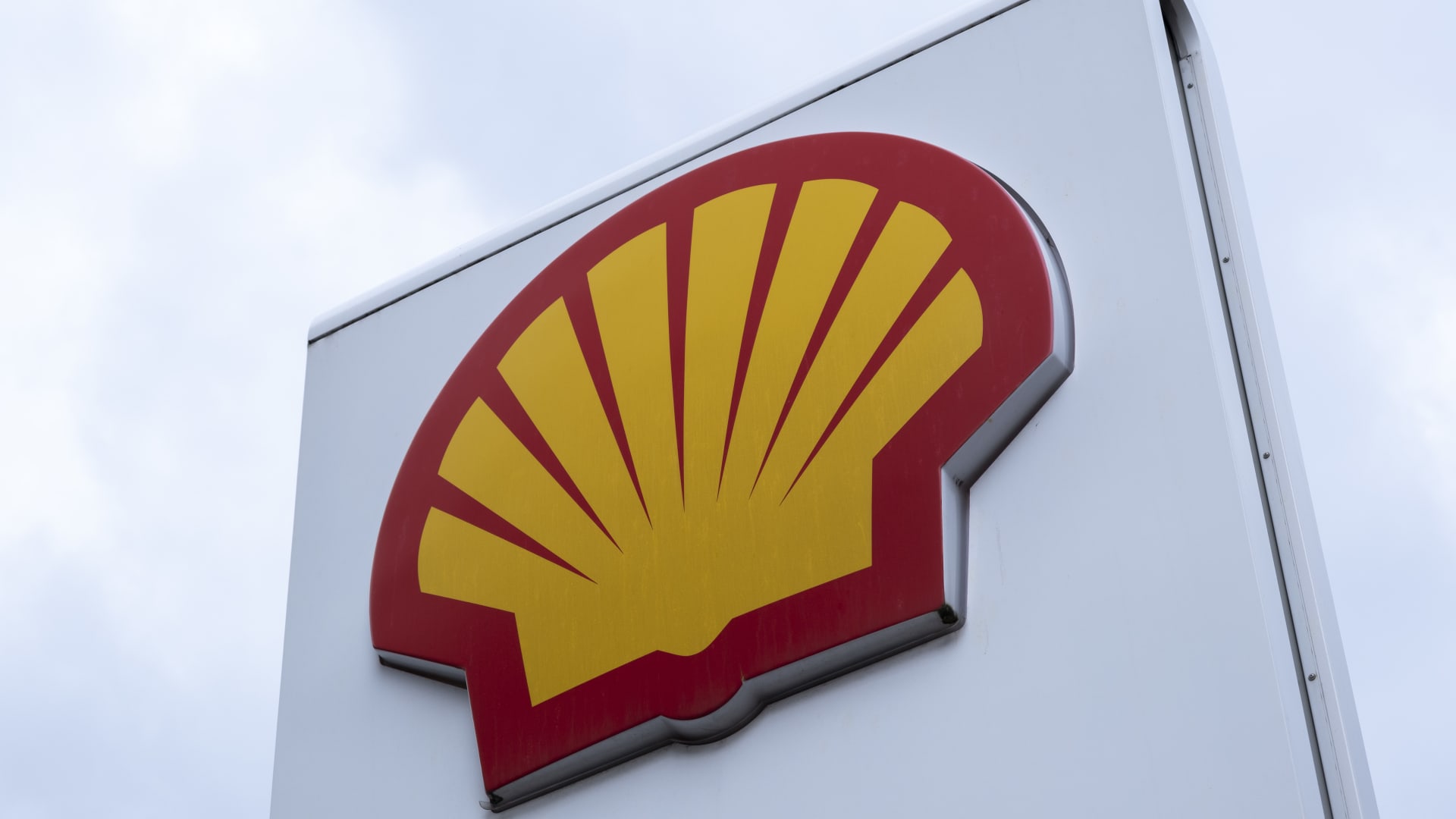Oil giant Shell’s UK ad campaign banned for being ‘likely to mislead’ consumers

Shell, which is aiming to become a net-zero emissions business by 2050, said it was concerned by what it described as a “short-sighted” decision.
Mike Kemp | In Pictures | Getty Images
Britain’s advertising regulator has banned an ad campaign promoting the green initiatives of Shell, saying the marketing of the oil giant’s lower emissions energy products was “likely to mislead” consumers.
The ban concerns a poster seen in Bristol in southwest England, a TV ad and a video posted on the Shell YouTube channel. All published in 2022, the ads sought to raise awareness of the range of Shell’s energy products under a campaign tagline of “The U.K. is ready for cleaner energy.”
“From electric vehicle charging to renewable electricity for your home, Shell is giving customers more low-carbon choices and helping drive the UK’s energy transition,” the company says in one of the ads.
The Advertising Standards Authority said Tuesday that, following an investigation, it had concluded that the ad campaign may lead people to overestimate the firm’s investment in clean energy. The ASA said more information was necessary to fully capture that most of Shell’s business is based on environmentally damaging fossil fuels.
Shell, which targets net-zero emissions by 2050, said it was concerned by what it described as a “short-sighted” decision.
“We strongly disagree with the ASA’s decision, which could slow the UK’s drive towards renewable energy,” a company spokesperson said.
“People are already well aware that Shell produces the oil and gas they depend on today,” they said. “But what many people don’t know is we’re also investing heavily in low- and zero-carbon energy, including building one of the UK’s largest public networks of EV charge points.”
The ASA ruling noted that Shell believed the ads “accurately represented” the range of lower emissions energy products and services it offers and that any mention of the firm’s high-carbon products would have been “counterproductive.”
The pronouncement comes amid a palpable sense of frustration from climate activists during the Big Oil proxy voting season, where shareholders ultimately rejected calls for the companies to adopt stronger measures to mitigate the climate crisis.
The burning of fossil fuels, such as oil, gas and coal, is the chief driver of the climate emergency.
The ASA said that consumers were “increasingly concerned about the environmental impact of activities related to higher-carbon products and services.”
Campaign group AdFree Cities said ASA’s ruling “sends a powerful message” to energy companies that greenwashing ad campaigns would no longer be tolerated in the U.K. They also called for U.K. lawmakers to implement robust legislation to stop fossil fuel advertising altogether.
“The world’s biggest polluters will not be permitted to advertise that they are ‘green’ while they build new pipelines, refineries and rigs — but this doesn’t go far enough,” said Veronica Wignall, co-director of Adfree Cities, who led the complaint.
“Shell and other fossil fuel expanders should not be permitted to advertise at all, given their historic and ongoing role in wrecking the planet,” Wignall said.
Big Oil posted bumper profits last year, bolstered by soaring fossil fuel prices and robust demand following Russia’s full-scale invasion of Ukraine.
Shell reported its highest-ever annual profit of nearly $40 billion for 2022. That comfortably surpassed the $28.4 billion of 2008 that Shell said was its previous annual record and was more than double the firm’s full-year 2021 profit of $19.29 billion.
Last month, Shell posted adjusted earnings of $9.6 billion for the first three months of 2023.
Shares of the company were mixed on Wednesday. Shell’s stock price is down roughly 2.4% year-to-date.